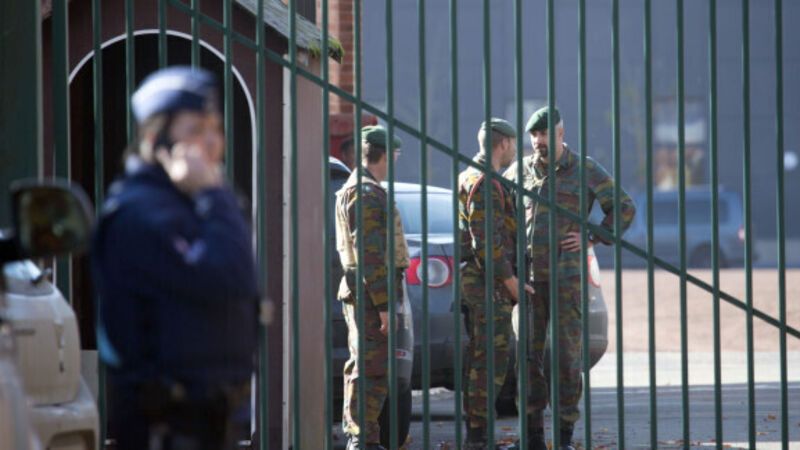Brussels on terror alert amid fears of Paris style attack

Heavily armed police and soldiers patrolled key intersections and subways were closed in Belgian capital Brussels as the government warned of a threat of Paris-style attacks.
At least one suspect from the deadly Paris attacks is at large and was last seen crossing into Belgium.














